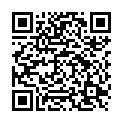|
|
|
| Module code: MFSTM-310 |
|
|
4V (4 hours per week) |
|
6 |
| Semester: 3 |
| Mandatory course: yes |
Language of instruction:
German |
Assessment:
Written exam and project (60 minutes/Weighting 1:1/Can be repeated annually)
[updated 20.01.2020]
|
MFSTM-310 (P440-0013, P440-0014) Leisure, Sports, Tourism Management, Master, ASPO 01.04.2017
, semester 3, mandatory course
|
60 class hours (= 45 clock hours) over a 15-week period.
The total student study time is 180 hours (equivalent to 6 ECTS credits).
There are therefore 135 hours available for class preparation and follow-up work and exam preparation.
|
Recommended prerequisites (modules):
None.
|
Recommended as prerequisite for:
|
Module coordinator:
Prof. Dr. Achim Schröder |
Lecturer:
Dozierende des Studiengangs
[updated 21.12.2023]
|
Learning outcomes:
After successfully completing this module, students will be able to:
_ demonstrate a basic understanding of marketing and its place in the business context of leisure, sports and tourism,
_ name the tasks and functions of marketing,
_ critically examine marketing activities with regard to society,
_ identify marketing mix instruments (product, price, communication, distribution and process policy) and relate them to sector-specific characteristics of the service sector,
_ explain the special importance of a communication policy for the field of leisure, sports and tourism,
_ be able to demonstrate and apply a deeper understanding of communication policy and its instruments,
_ be able to develop, document and present a communication mix for a specific question/problem on the basis of the methods and instruments conveyed in the lecture.
[updated 20.01.2020]
|
Module content:
"Marketing and Communication Policy" lecture
_ Basic concepts of marketing and the classification of marketing in the corporate context of leisure, sports and tourism
_ Critical assessment of the impact of marketing on society
_ Principles of consumer behavior
_ Market segmentation methods, transnational target groups
_ Creative fields within the marketing mix: product policy,
communication policy, pricing policy, distribution policy, process policy in the service sector
_ Psychological theories on the influence of communication
_ The communication mix
_Advertising, product placement and sales promotion
_ Public relations (internal and external PR)
_ Trade fairs and exhibitions
_ Sponsoring
_ Event marketing
_ Budgeting
_ Media planning
_ Measuring the communication effect
Seminar on focus area:
_Students will get the chance to apply the content conveyed in the lecture to a task or problem from the field of leisure, sports and tourism management (resp. cultural management).
[updated 20.01.2020]
|
Teaching methods/Media:
_ Seminaristic lecture course
_ Role playing
_ Group and project work (concept development and presentation)
_ Discussions with fellow students and third parties
_ Presentations and preparation of documentation/papers
[updated 20.01.2020]
|
Recommended or required reading:
_ Bruhn, Manfred: Marketing. Grundlagen für Studium und Praxis, Gabler, Wiesbaden, latest edition
_ Freyer, W.: Tourismus-Marketing, München: Oldenbourg, latest edition
_ Fuchs, W., Unger, F.: Management der Marketing-Kommunikation, Springer, latest edition
_ Kotler, P. et al: Grundlagen des Marketing. München: Pearson Studium, latest edition
_ Kroeber-Riel, W., Weinberg, P., Gröppel-Klein, A.: Konsumentenverhalten, München, Vahlen, latest edition
_ Meffert, H. et al.: Marketing. Grundlagen marktorientierter Unternehmensführung. Wiesbaden: Gabler, latest edition
_ Meffert, Heribert et al.: Internationales Marketing-Management, Kohlhammer, Stuttgart, latest edition
_ Meffert, Manfred; Bruhn, Manfred: Dienstleistungsmarketing: Grundlagen -Konzepte _ Methoden, Gabler, Wiesbaden, latest edition
[updated 20.01.2020]
|


